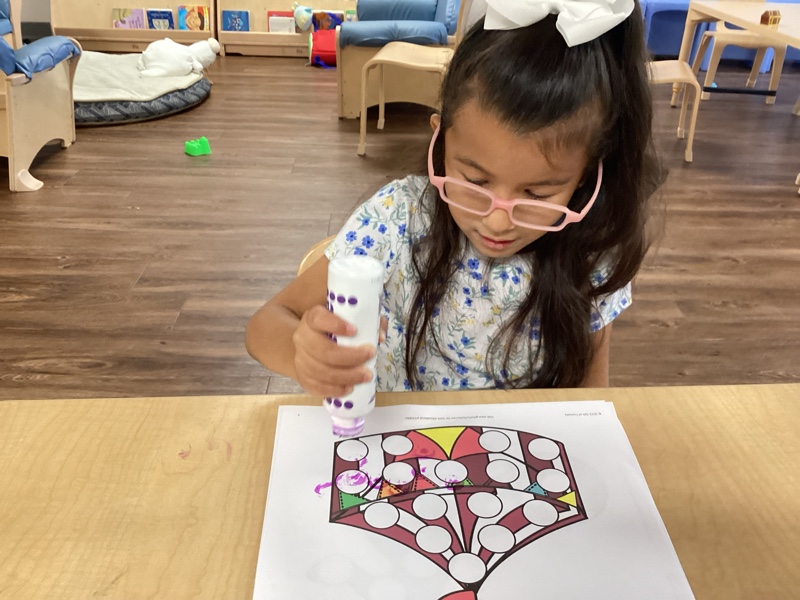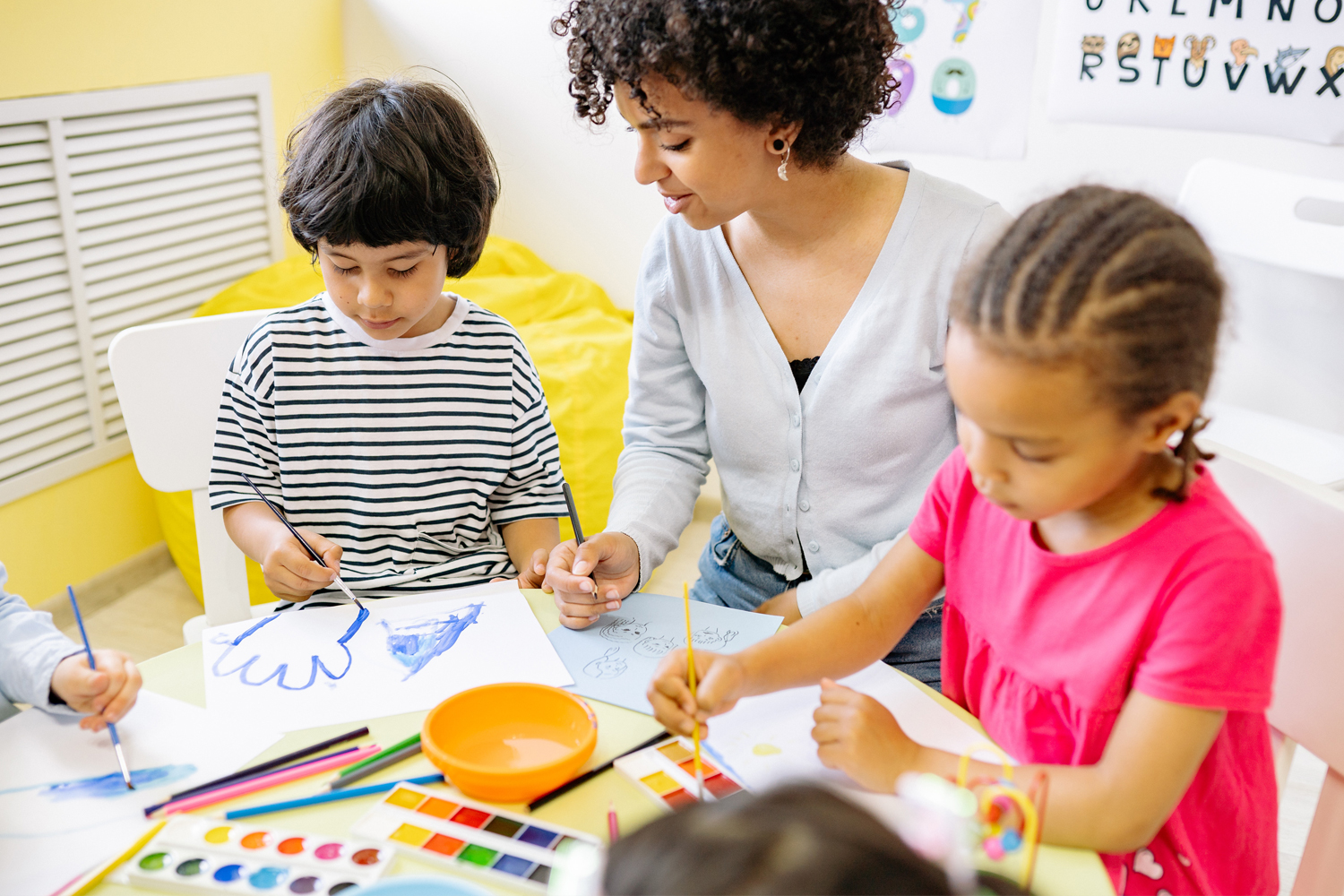Quickly, what's the first thing that comes to mind when I say the word circus? Elephants, clowns, a big tent, popcorn, flying acrobats. Usually, the word conjures up fond memories and explains why it's called the greatest show on earth. In choregraphed chaos, exciting skills are performed one after another in an electrifying atmosphere. For families with neurodiverse children, Chicago's circus scene can be the perfect setting for celebrating diversity, watching stimulating stunts, and seeing exotic birds and animals. With a little planning and preparation, you too can have fond memories attached to the word circus for your child.
Why the Circus Connects with Neurodiverse Children
Sensory-Rich Environment: The circus offers a controlled sensory experience with vibrant colors, music, movement, and textures. Many neurodiverse children thrive in environments that engage multiple senses simultaneously.
Visual Learning: Circus performances tell stories through movement, expression, and visual spectacle—perfect for children who process information better through seeing rather than hearing.
Celebrating Differences: Every circus performer has unique abilities. This mirrors how neurodiverse children often have remarkable talents in specific areas, helping them see their differences as superpowers.
Imagine a circus not just as a show, but as a live classroom where every sound, light, and crowd becomes a teachable moment. The circus is a running, real-world curriculum. The venue's chaos is not chaos to fear, but a filtered environment that tests and strengthens the very skills your child is already learning: paying attention, adapting to transitions, and coordinating thoughts with actions.
What Makes a Circus Day Work
Your child practices joint attention, turn-taking, and responding to cues in a setting that doesn't feel clinical. The environment becomes a personalized toolset: Noise levels, lights, crowds, and the pace of the show can be shaped by where you sit, when you take a break, and which moments you amplify (or minimize) for comfort. Goals feed off the show, not against it: Pick 2-3 observable outcomes that fit your child's strengths. If your child loves stories, focus on describing scenes; if they're driven by routine, anchor the day around a simple visual schedule.
A Simple Itinerary
- Morning prep: Quick check-in with your child about the goals and the tools they'll use.
- Arrival circle or cue practice: A brief activity to practice transitions and early cooperation.
- Travel to the venue: Follow familiar routines to stay calm and safe.
- Seating and show: Pick a comfortable spot and have a plan to pause for a reset.
- Intermission: A built-in break to regulate and refocus.
- Post-show reflection: A short chat about what went well and what could be tried next time.
- Homeward wind-down: Celebrate small wins and store insights for future outings.

Chicago's Premier Circus Venues & Current Shows
Allstate Arena – Rosemont
Currently Featuring: Ringling Bros. and Barnum & Bailey Circus (2024-2025 Tour)
- What to Expect: High-flying trapeze artists, death-defying motorcycle stunts, hilarious clowns, and exotic animals including camels and horses.
- Sensory Notes: Large venue with powerful sound system. Bring headphones for sensitive ears.
- Best For: Children who enjoy high-energy performances and aren't easily overwhelmed by crowds.
- Ringling Bros. Details
Chicago Theatre – Downtown
Currently Featuring: Cirque du Soleil – "Kooza" (Select Dates)
- What to Expect: Acrobatic storytelling, live musicians, colorful costumes, and character-driven performances with no animals.
- Sensory Notes: Intimate theater setting with sophisticated lighting and music.
- Best For: Children who prefer narrative-driven shows and smaller crowds.
- Cirque du Soleil Details
Midnight Circus in the Parks – Various Chicago Parks
Seasonal Performances: Free outdoor circus
- What to Expect: Community-focused performances featuring local stories, aerial arts, live music, and audience interaction.
- Animals: None – focuses on human artistry.
- Sensory Notes: Outdoor setting allows easy movement, natural lighting, and blankets.
- Best For: Families seeking free, community-oriented experiences.
- Schedule & Locations
Teatro ZinZanni – Chicago
Dinner Theatre Circus Experience
- What to Expect: Intimate dinner-and-show experience with acrobats performing between tables, interactive comedy, and gourmet dining.
- Animals: None – focuses on aerial arts and comedy.
- Sensory Notes: Smaller, controlled environment with table seating.
- Best For: Older children who can sit through dinner and enjoy close-up performances.
- Reservations & Info
United Center
Seasonal Touring Shows: Various circus productions throughout the year.
- Recent Performers: UniverSoul Circus (featuring live animals including horses, dogs, and exotic birds), Big Apple Circus.
- What to Expect: Traditional circus atmosphere with three-ring performances.
- Sensory Notes: Large arena – consider upper level seats for better overall view and easier exit access.
- Event Calendar
Inclusivity and Accessibility in Practice
The best circuses today often offer sensory-friendly performances, quiet zones, and staff trained to support families with neurodiverse children. If a show isn't labeled sensory-friendly, prepare with intentional adaptations. Your plan can still deliver a smooth, enjoyable experience.
Connecting Home, School, and the Circus
Home: Use visuals and prompts to reminisce about the day. Invite your child to tell stories about what they saw, heard, and felt.
School or preschool routines: Translate the day's experiences into skills that your child can benefit from in the classroom: turn-taking, following cues, staying focused.
Family collaboration: Share what worked, what didn't, and what you'd tweak next time. Your feedback helps shape future outings.
A Chicago circus day can be more than a fun outing. With a thoughtful, flexible approach treating the day as a living classroom, you can practice communication, self-regulation, social skills, and independence in a magical setting. But more importantly, the word circus will conjure up memories of family fun, elephants, clowns, flying acrobats, tigers, exotic birds and more.

Blue Bird Day—the first therapeutic preschool and kindergarten program in the nation—fosters socialization, sensory regulation, and pre-academic learning in children ages 2-7 years. Our compassionate therapists practice a relationship-based and family-centered approach, provide parent training, and collaborate on goals and individualized intensive treatment plans for your child.
We believe in a collaborative and multi-disciplinary team approach to therapy. A team of occupational therapists, speech-language pathologists, dietitians, developmental therapists, behavioral therapists, physical therapists, and therapeutic assistants are created for each child to ensure child and family are fully supported and the best possible results are achieved.
Options for individualized, group and virtual therapy sessions are available as well.
Want to learn more or you have a specific question? Feel free to connect with us here!



